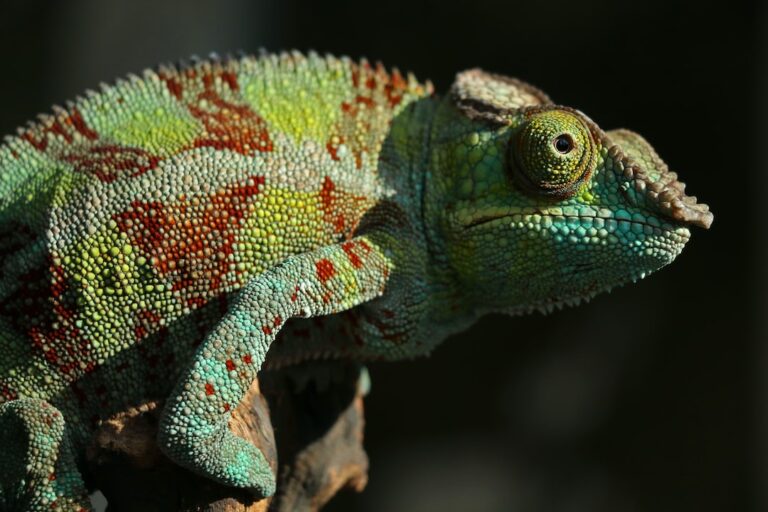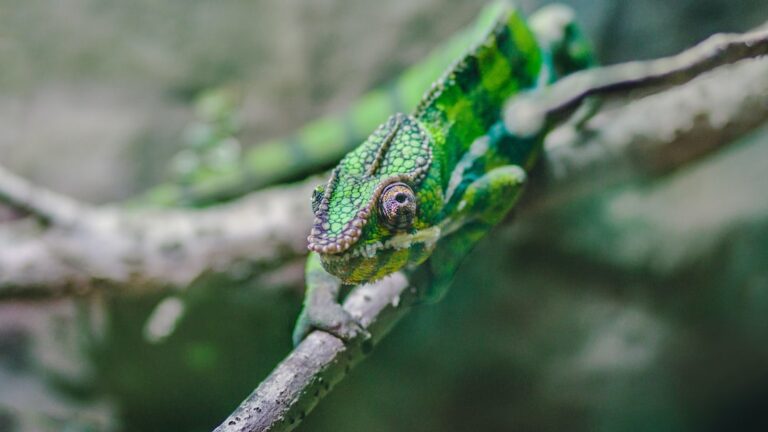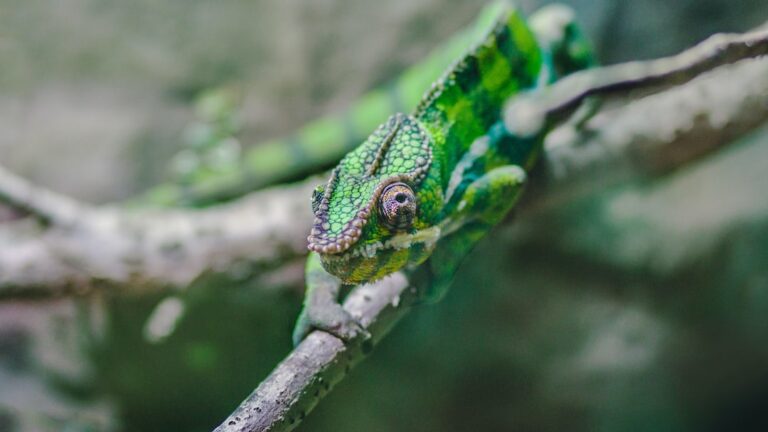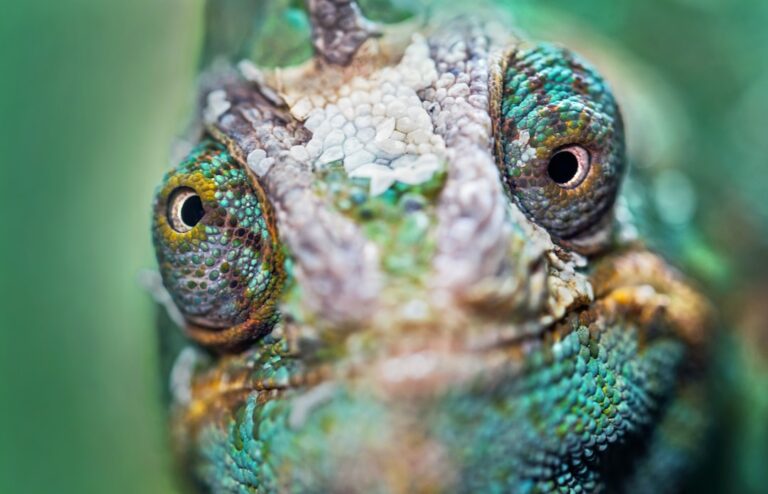Can Chameleons Eat Apples?
Chameleons are fascinating creatures known for their ability to change color and blend into their surroundings. They have long been a subject of curiosity and intrigue for scientists and nature enthusiasts alike. One question that often arises is whether chameleons have any interest in apples, a popular fruit among humans. This article will explore the feeding habits of chameleons, the nutritional value of apples for these reptiles, and the potential risks and benefits of feeding apples to chameleons.
Table of Contents
Understanding Chameleons’ Feeding Habits
In the wild, chameleons primarily feed on insects such as crickets, grasshoppers, and flies. They are insectivores, meaning their diet consists mainly of insects. This is because insects provide the necessary nutrients, such as protein and vitamins, that chameleons need to thrive. In captivity, it is important to replicate a chameleon’s natural diet as closely as possible to ensure their health and well-being.
Chameleons are skilled hunters and use their long tongues to catch prey. They have excellent eyesight and can spot insects from a distance. Once they have located their prey, they use their tongue to shoot out and capture it. Chameleons have a unique tongue structure that allows it to extend rapidly and stick to the prey, bringing it back into their mouth for consumption.
Nutritional Value of Apples for Chameleons
Apples are a popular fruit among humans due to their sweet taste and high nutritional content. They are rich in vitamins, minerals, and fiber. Apples are also known for their high water content, which can help keep chameleons hydrated.
In terms of vitamins, apples are a good source of vitamin C, which is important for immune function and overall health. Chameleons, like humans, cannot produce their own vitamin C and must obtain it from their diet. Feeding apples to chameleons can help ensure they are getting an adequate amount of this essential vitamin.
Can Chameleons Digest Apples?
Chameleons have a unique digestive system that is adapted to process their natural diet of insects. Their digestive system is not designed to handle large amounts of plant matter, such as fruits and vegetables. While chameleons may show some interest in apples, it is unclear whether they can fully digest them.
Feeding chameleons large amounts of apples can potentially lead to digestive issues, such as diarrhea or constipation. The high sugar content in apples can also be problematic for chameleons, as they are not adapted to handle large amounts of sugar in their diet.
Potential Risks of Feeding Apples to Chameleons
Feeding apples to chameleons can pose several risks. As mentioned earlier, the high sugar content in apples can be problematic for chameleons and may lead to digestive issues. Additionally, chameleons have a delicate digestive system that is not designed to handle large amounts of plant matter. Feeding them too many apples or other fruits can disrupt their digestive balance and lead to health problems.
To mitigate these risks, it is important to feed apples to chameleons in moderation and as a treat rather than a staple food. It is also crucial to provide a balanced diet that includes a variety of insects and other appropriate foods.
How to Prepare Apples for Chameleons
If you decide to feed apples to your chameleon, it is important to properly prepare them. Start by washing the apple thoroughly to remove any pesticides or dirt. It is recommended to use organic apples whenever possible to minimize the risk of pesticide exposure.
Next, cut the apple into small, bite-sized pieces that are appropriate for your chameleon’s size. Chameleons have small mouths and may struggle to eat large pieces of apple. Cutting the apple into smaller pieces will make it easier for them to consume.
Alternative Fruits for Chameleons
If you are looking for alternative fruits to feed your chameleon, there are a few options that may be suitable. Papaya and mango are two fruits that are often recommended for chameleons. These fruits are high in water content and provide some nutritional benefits.
Papaya is rich in vitamins A and C, as well as fiber. It is also low in sugar, making it a better option than apples in terms of sugar content. Mango is another fruit that chameleons may enjoy. It is high in vitamin C and provides some hydration due to its water content.
Balancing a Chameleon’s Diet with Apples
When feeding apples or any other fruit to chameleons, it is important to balance their diet with other appropriate foods. As mentioned earlier, chameleons are primarily insectivores and require a diet rich in insects to thrive.
In addition to insects, chameleons also benefit from a variety of leafy greens and vegetables. These can provide additional nutrients and fiber that may be lacking in their insect-based diet. By offering a balanced diet that includes a variety of foods, you can ensure your chameleon is getting all the necessary nutrients it needs to stay healthy.
Feeding Apples to Chameleons: Dos and Don’ts
When feeding apples to chameleons, there are a few dos and don’ts to keep in mind:
– Do feed apples as an occasional treat rather than a staple food.
– Do wash the apple thoroughly before serving it to your chameleon.
– Do cut the apple into small, bite-sized pieces that are appropriate for your chameleon’s size.
– Don’t feed large amounts of apples to your chameleon, as this can lead to digestive issues.
– Don’t feed apples that are overly ripe or spoiled, as they may cause stomach upset.
Apples as a Treat for Chameleons
In conclusion, while chameleons may show some interest in apples, it is important to feed them in moderation and as a treat rather than a staple food. Chameleons have a unique digestive system that is adapted to process their natural diet of insects, and feeding them large amounts of plant matter can lead to digestive issues.
Apples can provide some nutritional benefits for chameleons, such as hydration and vitamin C. However, it is crucial to balance their diet with other appropriate foods, such as insects and leafy greens. By offering a varied diet and feeding apples in moderation, you can ensure your chameleon stays healthy and happy.
If you’re curious about the dietary habits of chameleons, you may also be interested in learning about their ability to eat mealworms. Mealworms are a popular choice for feeding reptiles, but can chameleons safely consume them? Find out more in this informative article on reptilefriend.com.






